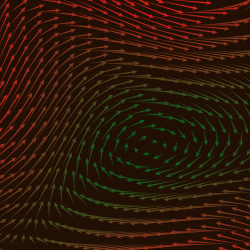Magneto-ionic and Electrostatic Gating of Magnetism: Phenomena and Devices
 Voltage control of magnetism is among the most promising routes to low-power control of magnetic states in spintronics applications. Charge and ionic effects in technologically relevant magnetic materials have shown great potential, offering high speed for charge effects and non-volatility in the case of ionic effects, linked to their specific gating mechanisms and device designs. It is therefore of great importance to address the current challenges to bring this technology closer to applications, such as improving performance in charged based devices and reversibility and cyclability in magneto-ionics.
Voltage control of magnetism is among the most promising routes to low-power control of magnetic states in spintronics applications. Charge and ionic effects in technologically relevant magnetic materials have shown great potential, offering high speed for charge effects and non-volatility in the case of ionic effects, linked to their specific gating mechanisms and device designs. It is therefore of great importance to address the current challenges to bring this technology closer to applications, such as improving performance in charged based devices and reversibility and cyclability in magneto-ionics.
In this special topic we will focus on advances made in both ionic and charge based magnetic gating, contributions will include gating of magnetic domain wall motion, the Dzyaloshinsky-Moriya interaction, spin-torque, magnetic anisotropy magnetization dynamics and inter-layer coupling in a variety of magnetic materials. It will be of particular interest to highlight the progress made in designing devices and materials targeting applications in, for example, magnetic memories and neuromorphic computing. Contributions will also include work aimed at deepening the theoretical understanding of these two magnetic gating mechanisms with an impact on applications. This special topic has therefore a highly interdisciplinary scope that brings together physics, chemistry, material science and device engineering.
Topics covered include, but are not limited to:
- E-field control of magnetic domain wall dynamics, magnetic anisotropy and DMI
- E-field control of spin-torque switching
- Materials for magneto-ionics
- Physico-chemical aspects of magneto-ionics
- Electrochemical, ionic liquid and solid-state gating
- Magnetic gating for neuromorphic computing
- E-field control of magneto-transport properties
- E-field control of interlayer exchange coupling
Guest Editors
Dustin Gilbert, University of Tennessee
Simon Granville, Victoria University of Wellington
Daichi Chiba, Osaka University
Karin Leistner, Technische Universität Chemnitz
APL Editor
Liza Herrera Diez, Université Paris Saclay
